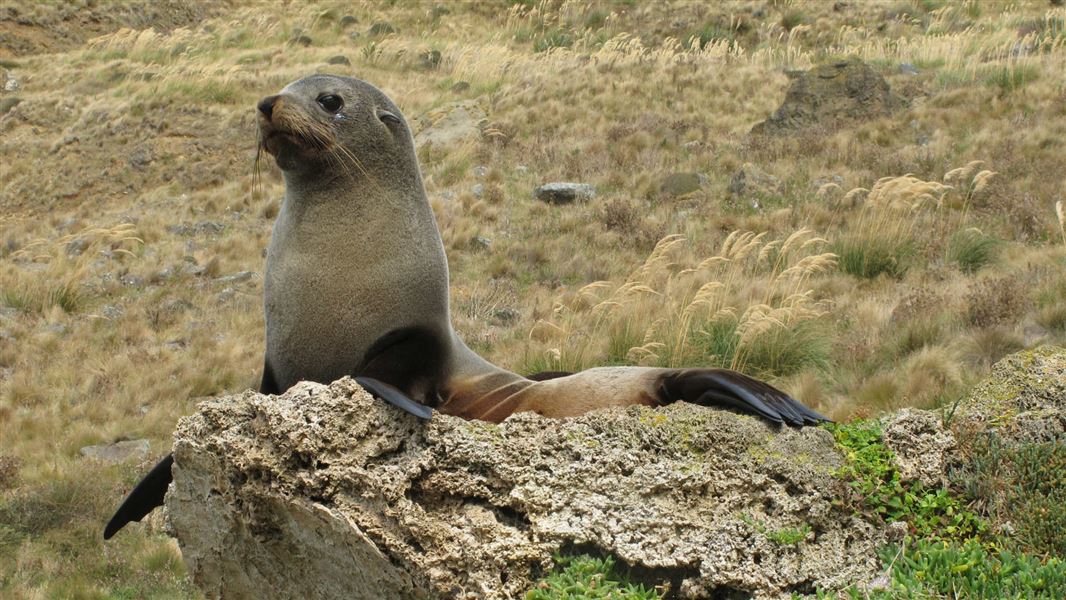Archived content: This media release was accurate on the date of publication.
Date: 25 June 2019
DOC East Coast Biodiversity Ranger Jamie Quirk says even though this is normal seal behaviour many people are concerned by it.
“Each year we receive a lot of calls from concerned members of the public. It’s great that the community cares so much about these mammals, but most callers describe normal seal behaviour, like drifting in the water or lazing on a beach.”
Seals are often observed sneezing and coughing which rangers say may look odd, but is likely to be the seal getting rid of undigested food like squid beaks and fish bones.
“There are often a couple of calls a year from people concerned that the seal is crying, but seals don’t have tear ducts,” Jamie Quirk says. “Weepy eyes are normal moisture secretions. It’s also normal for seals to be immobile – seals are good at lying around and resting!”
He says DOC doesn’t want to discourage genuine calls about seal welfare and encourages the public to phone 0800 DOC HOT (0800 362 468) if there is a genuine need for attention, such as a seal being harassed by people or dogs.
“It’s also important that the public allow rangers to deal with seals, as on occasion we need to transfer a seal for their safety,” he adds. “When we shift seals, they are moved to remote places where the likelihood of them being disturbed is reduced.
DOC has a hands-off policy with seals and will only intervene if a seal is obviously severely injured, is entangled in marine debris, or is in a dangerous place such as on or near a public road.
“Fur seals are wild animals and will defend their territory aggressively. They can also carry infectious diseases and can inflict serious injury with their teeth.”
If you encounter a seal on or near a beach, please leave it to rest:
- Always keep dogs on a leash, under control and away from seals
- Ensure you keep small children at a safe distance and under your control when watching seals
- Don’t get closer than 20 metres
- Do not get between the seal and the sea
- Do not touch or feed the seal.
Background information
All seals, sea lions, dolphins and whales are protected under the Marine Mammals Protection Act 1978. It’s an offence to harass, disturb, injure or kill marine mammals.
Anyone charged with harassing, disturbing, injuring or killing a marine mammal faces a maximum penalty of two years imprisonment or a fine to a maximum of $250,000.
Contact
For media enquiries contact:
Email: media@doc.govt.nz
